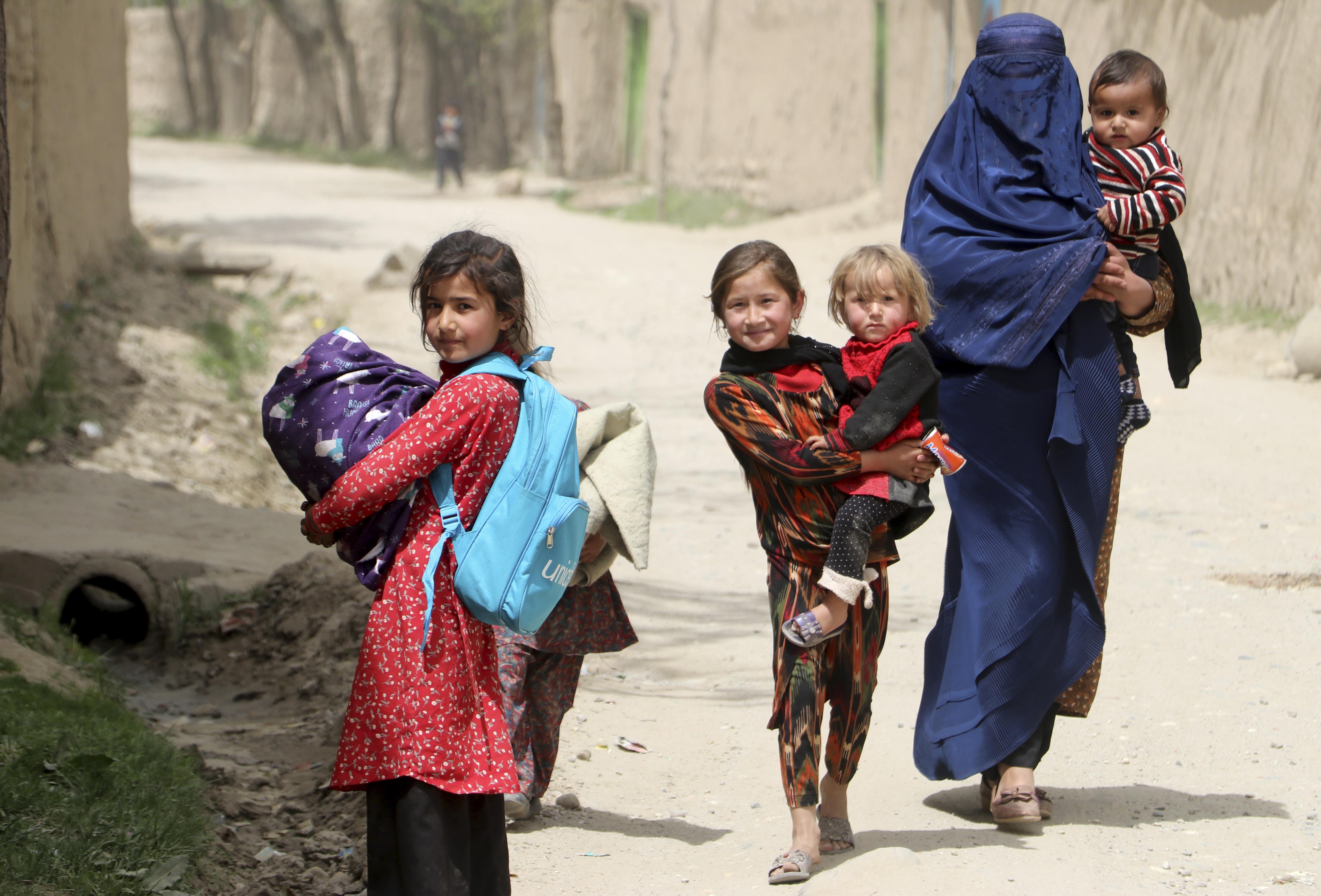 An Afghan burqa-clad woman walks with children along a street in Argo district of Badakhshan province on April 13, 2023. (PHOTO / AFP)
An Afghan burqa-clad woman walks with children along a street in Argo district of Badakhshan province on April 13, 2023. (PHOTO / AFP)
Afghanistan's economy will contract, inflation will rise and liquidity will fall if there is a 30 percent drop in international aid as feared, according to an analysis by the United Nations' development agency released on Tuesday.
International officials say aid to Afghanistan, the recipient of the world's largest humanitarian program, will drop sharply this year as donors assess global crises and because of restrictions on female aid workers imposed by the Taliban administration.
The United Nations' Development Programme (UNDP) analyzed the impact of a 30 pecent drop in aid and found gross domestic product for the already struggling economy would shrink 0.4 percent this year
The United Nations' Development Programme (UNDP) analyzed the impact of a 30 pecent drop in aid and found gross domestic product for the already struggling economy would shrink 0.4 percent this year.
"This will cause an exchange rate devaluation, another contraction in liquidity, banks and informal credit will face more problems ... inflation will go up and domestic demands will go down, leading to more poverty and less growth," Abdallah Al Dardari, UNDP's Resident Representative for Afghanistan, told Reuters. "The country finds itself in a poverty trap."
Per capita annual incomes could fall to $306 in 2024 - representing a 40 percent drop since 2020 and placing the country among the poorest in the world.
ALSO READ: UN asks Afghan staff to stay home until May
Afghanistan's humanitarian aid plan is only 5 percent funded for 2023, with $251 million committed out of $4.6 billion requested.
"We may find ourselves in a larger drop in aid than 30 percent," said Al Dardari.
If aid continued at $3.7 billion, received last year, the economy was projected to grow 1.3 percent, making up some ground after plummeting since the Taliban came to power and foreign forces and development aid withdrew in 2021, but still failing to keep pace with more than 2 percent population growth.
The Taliban administration's order banning most female NGO workers in December followed by a decision to restrict Afghan women from working at the United Nations this month have exacerbated fears that donors would turn away from Afghanistan. The UN has told Afghan staff not to come to the office while it reviews its operations.
READ MORE: Kabul rejects US' claim over IS strength in Afghanistan
Taliban officials have said their decisions on female aid workers are an "internal issue" and that foreign governments should reduce restrictions and unfreeze central bank assets to alleviate the economic crisis.


